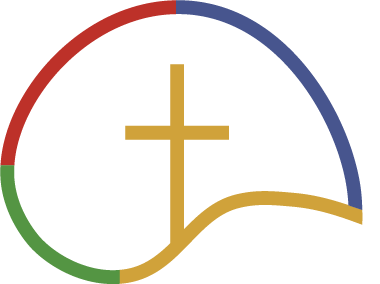The Liturgy: A Work Song for God’s People
The connection between music and labor is well-documented, from the likes of “whistle while you work” and “a spoonful of sugar” to the maritime work songs known as sea shanties (or “chanties”). Singing together reinforces shared identity and vision, and transforms esoteric, intangible ideas into lived-in, collective experiences. On a bustling merchant vessel, where capitalism is the creed, rhythmic chants increase productivity and profit. For cloistered monks and nuns, the goal could hardly be more different, yet chanting the Divine Office has a similar unifying, clarifying effect. We find ourselves somewhere in the middle of these extremes, gathered together to worship an almighty, mysterious God, while undeniably tied to the secular realities of mortgages, insurance, and aging buildings. Stewardship is often lumped in with the latter half of this tense balancing act. This is only true, however, if stewardship is only about money. If stewardship is a response to the gospel’s call, then it is an important part of the work song of God’s people.
Liturgy—from the Greek words lēitos (public) and ergos (work)—is public service, or “the work of the people.” It’s what we do. We speak, sign, chant, and sing passed-down stories of love that endures through and beyond death. We confess our need for forgiveness and hear about God’s eagerness to provide it. We remember our baptisms, our forebears in faith, and the words through which Jesus instituted a new covenant. We pray. We wrestle with God—sometimes, like Jacob, we leave limping; always, like Jacob, we leave with a blessing. God is revealed to us, and in turn, we see ourselves more clearly. As my wife, Pr. Elise Pokel, puts it, “The liturgy might be the only time in the week that we hear the whole truth about ourselves: we are ‘in bondage to sin, and cannot free ourselves,’ yet we are ‘co-heirs with Christ.’”
Jesus said, “If you abide in my word, you are truly my disciples, and you will know the truth, and the truth will set you free.” (John 8:31-32) The liturgy transports us to the fountainhead of the water of life, from which countless streams flow into the drought-afflicted world. In this abiding-place, worshiping communities must work together, equipped and empowered by their leaders, to discern the Holy Spirit’s beckoning call. In his essay “To Be Human Is to Sing,” Paul Westermeyer wrote, “[In worship,] we think we are praising, praying, and proclaiming—and of course we are, but something more basic is going on: God addresses us in word and sacrament, and the Holy Spirit breathes in us a song.”
The liturgy’s work continues by supporting this figurative song with literal songs. For example, a church that realizes a shared passion for hunger or housing ministries might sing “Lord Whose Love in Humble Service” (ELW 712) throughout a capital campaign. Likewise, a church that hears the call to global missions might sing “This Is My Song” (ELW 887). For a worshiping community that longs to connect with Spanish-speaking neighbors, a hymn like “Oh, Sing a New Song” (ELW 822) would offer a chance to practice singing in Spanish. “For the Beauty of the Earth” (ELW 879) both proclaims the majesty of God the Creator and could also inspire a church called to creation care. The church where I serve as worship director, Woodlake Lutheran in Richfield, MN, recently underwent a capital campaign with the theme “Come as You Are.” This theme served our community well because, first and foremost, it relates authentically to the gospel, while also helping to start conversations about accessibility-minded updates and repairs. As always, context matters. At our more traditional service, classic hymns like “I Love to Tell the Story” helped connect the ideas of witness and evangelism to our need for better audio-visual technology. At our more modern service, new songs like “Come as You Are” by The Many helped to share Jesus’ welcoming message from Matthew 11:28-30 in a fresh way.
The liturgy, a steward of the gospel in itself, provides the rhythmic “heave, ho!” that dislodges stewardship from our culture’s fraught relationship with money. Just as the gospel sets us free, the gospel can set stewardship free by giving it a place to abide.
Author Bio: Andy Pokel is a Twin Cities-based church musician, worship resource creator, and seminary student. He serves as Director of Worship and Music at Woodlake Lutheran in Richfield, MN, and is working towards an MA at Luther Seminary, where he is the Musician in Residence. Andy collaborates with his wife, Pr. Elise Pokel, under the name Foundry Hymnal; studio versions of their music can be heard on all major streaming platforms, and select scores can be purchased at TheReverbCollective.com. They are proud parents of two mischievous, marvelous boys.


